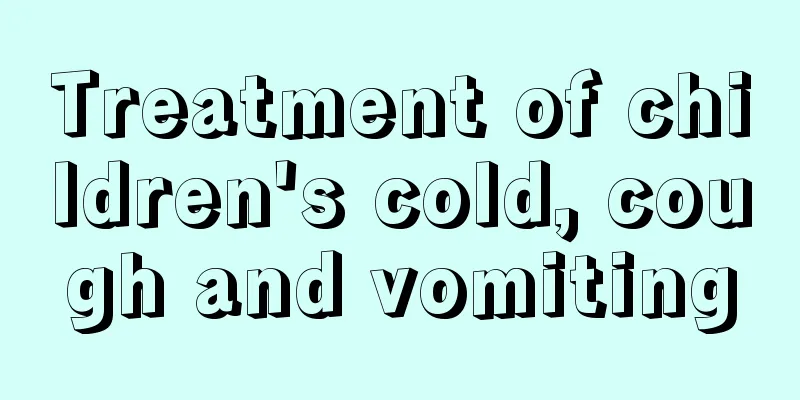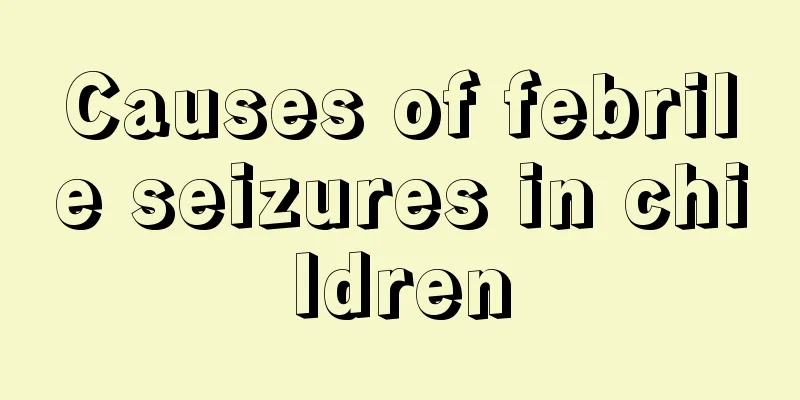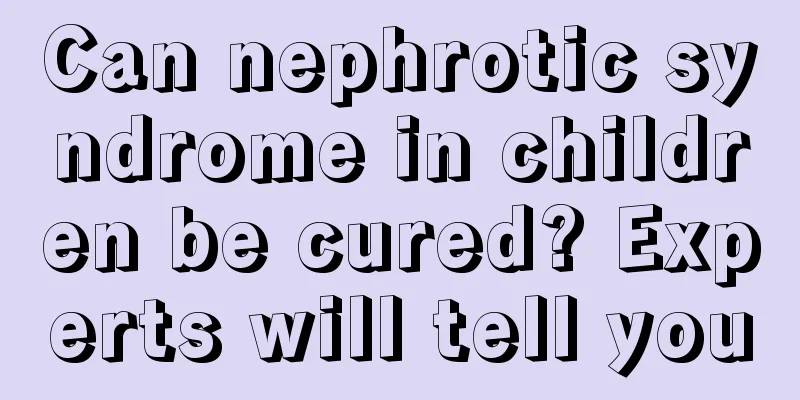Symptoms of indigestion in full-month-old babies

|
Indigestion is the most common disease among babies. Improper diet or cold can cause indigestion in children. Children with indigestion usually have symptoms such as dry stool, abdominal distension and fever, loss of appetite, white tongue coating, unstable sleep, and easy crying. Therefore, when children have the above symptoms, parents need to pay enough attention to avoid missing the best treatment period and causing adverse consequences. 1. Food accumulation Food accumulation is a disease in traditional Chinese medicine, which mainly refers to gastrointestinal diseases caused by excessive milk and food consumption in children, which damages the spleen and stomach and causes the milk and food to stagnate in the middle burner. The disease of indigestion often occurs in infants and young children, and its main manifestations are abdominal distension, dry or sour stool, foul-smelling flatulence, sour and rancid belching, and abdominal distension and heat. Food accumulation over a long period of time can cause malnutrition in children and affect their growth and development. Indigestion may not sound like a big deal, but it has real adverse effects on children's physical development and health! Therefore, as a parent, you must never underestimate this "small matter" of your baby's indigestion. 2. Symptoms of baby's indigestion Generally speaking, babies who have indigestion will have 6 obvious changes in their bodies. Mothers can observe the baby's daily behavior and determine whether the child has indigestion. 1. Appetite. Sometimes children have no appetite and don’t want to eat anything; but sometimes they have a big appetite and eat a lot of things at once, but their bodies are dry and they don’t gain weight; and sometimes babies seem to be able to eat a lot, but they only eat a few bites and stop. 2. Breath odor. When the mother gets close to the baby, she can clearly smell an unpleasant odor in the baby's mouth, a stinky odor, or a strong sour odor. 3. Sleep conditions. The baby sleeps restlessly, turning over and grinding his teeth, sweating, etc. 4. Tongue coating and complexion. The baby has a thick, white tongue coating, very red lips, a faint blue tint on both sides of the nose, and a yellow, muscular face. 5. Mental state. The baby has been in a bad mood recently, and his temper is much worse than before. He is easily irritated and cries. 6. Defecation. The baby's stomach is bloated, sometimes he is constipated and sometimes he has diarrhea, and his stool is very hard and smelly. |
<<: What medicine should teenagers take for insomnia
>>: One year old baby sweats on head while sleeping
Recommend
Outdoor activities can develop 3 abilities in children
Babies all like to play. If you take your childre...
Three-year-old baby with rhinitis coughs at night
The most common symptom of rhinitis is itching in...
Is it okay to use air conditioning when the baby has a cold?
The weather in the dog days of summer is hot and ...
Three kinds of food that will prevent your baby from growing taller
Babies are in the growth period, don't let so...
What causes baby hair loss?
Many parents will find that their babies are losi...
Why does a child’s stomach feel hot when he has a fever?
People's understanding of fever is often base...
How to remove dandruff-like substances on baby's scalp
Most newborn babies have some greasy, gray-brown ...
Eustachian tube analysis for infants
We all know the anatomical structure and physiolo...
What is the first aid method for pediatric burns?
We all know that babies lack self-control. If the...
Reasons why two-month-old babies don't sleep during the day
The most difficult time to take care of babies no...
How to improve children's memory
Some parents will find that their children often ...
Chalazion heals itself_Can a chalazion heal itself after it breaks
Chalazion is an eye disease caused by a deficienc...
Baby wind-heat cold diet therapy
Cold is a very common disease. Although this type...
Is body odor inherited by children? Authoritative experts will answer you
First of all, it is clear that body odor is compl...
Why does my child cough in the middle of the night?
Parents with babies at home may have this experie...









